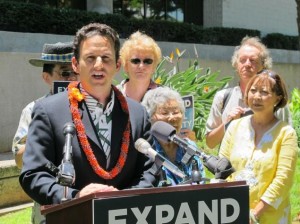 Bisphenol A. In an age of ever-growing consumer awareness and savy, many of us are familiar with this chemical, better known as BPA. We look for the phrase “BPA Free” on our water bottles, Tupperware containers and children’s sippy cups in the hopes we’re protected from negative health effects. Unfortunately, recent reports indicate that this is not the case.
Bisphenol A. In an age of ever-growing consumer awareness and savy, many of us are familiar with this chemical, better known as BPA. We look for the phrase “BPA Free” on our water bottles, Tupperware containers and children’s sippy cups in the hopes we’re protected from negative health effects. Unfortunately, recent reports indicate that this is not the case.
Despite the fact that Bisphenol A has been around for over a hundred years, it was only a few years ago in the late ‘00s that much of the danger around the endocrine-disrupting chemical came to light, ultimately leading to the FDA banning its use in baby bottles in July 2012. Despite this ban, which many would see as a confession of the chemical’s danger, the FDA maintains that BPA is still safe in small doses – it’s in everything from canned food to thermal receipt paper.
For those not as familiar, BPA is recognized as an endocrine-disrupting chemical – while in the human body it mimics estrogen. Although estrogen is produced naturally in both men and women, ingesting synthetic hormones can have drastic effects on the human body. BPA has been linked to a host of diseases and ailments, particularly breast cancer and hyperactivity. This is especially notable since recent estimates say that 1 in 8 women will be diagnosed with breast cancer in her lifetime and 1 in 5 high school-age boys in the US will receive an ADHD diagnosis.
While independent studies have found BPA to be highly dangerous in lower doses with “More than 95 percent of people in developed countries… exposed to levels of BPA that are “within the range” associated with health problems in animals, from cancer and insulin-resistant diabetes to early puberty”, the government is arguing that the chemical is still safe to use in small amounts. There are, however groups saying that the government study is flawed, mostly due to the fact that the control group in the study ended up being compromised.
Even if you limit your plastic use to only BPA-Free plastics, studies suggest you might not be as safe as you may think. A report published by Environmental Health Perspectives authored by a professor at University of Texas at Austin notes that “almost all” commercially available plastics tested contained “estrogenic activity” – the thing about BPA that makes it so dangerous. In the wake of all the attention around BPA, lots of tests have been done to test the potential health implications of other types of widely accepted plastics. A field guide to help decipher these plastics and the estrogenic activity of the chemicals in them can be found here.
One of the most concerning things about this plastics debate is the degree to which the chemical and plastic companies are subverting and ‘spinning’ information in an attempt to avoid regulation. As Public Citizen continues to push people before profits, it’s still important to try and do research on items you bring into your home whenever you can. When in doubt, avoid plastic if you can and opt for glass or metal containers or bottles.

 Good governance advocates got a win at City Hall today when the Austin City Council approved a resolution to create the Austin Generation Resource Planning Task Force. The task force will examine energy options and make recommendations regarding the 2014 update to the Austin Energy Resource, Generation, and Climate Protection Plan, which will be approved by City Council later this year.
Good governance advocates got a win at City Hall today when the Austin City Council approved a resolution to create the Austin Generation Resource Planning Task Force. The task force will examine energy options and make recommendations regarding the 2014 update to the Austin Energy Resource, Generation, and Climate Protection Plan, which will be approved by City Council later this year.







